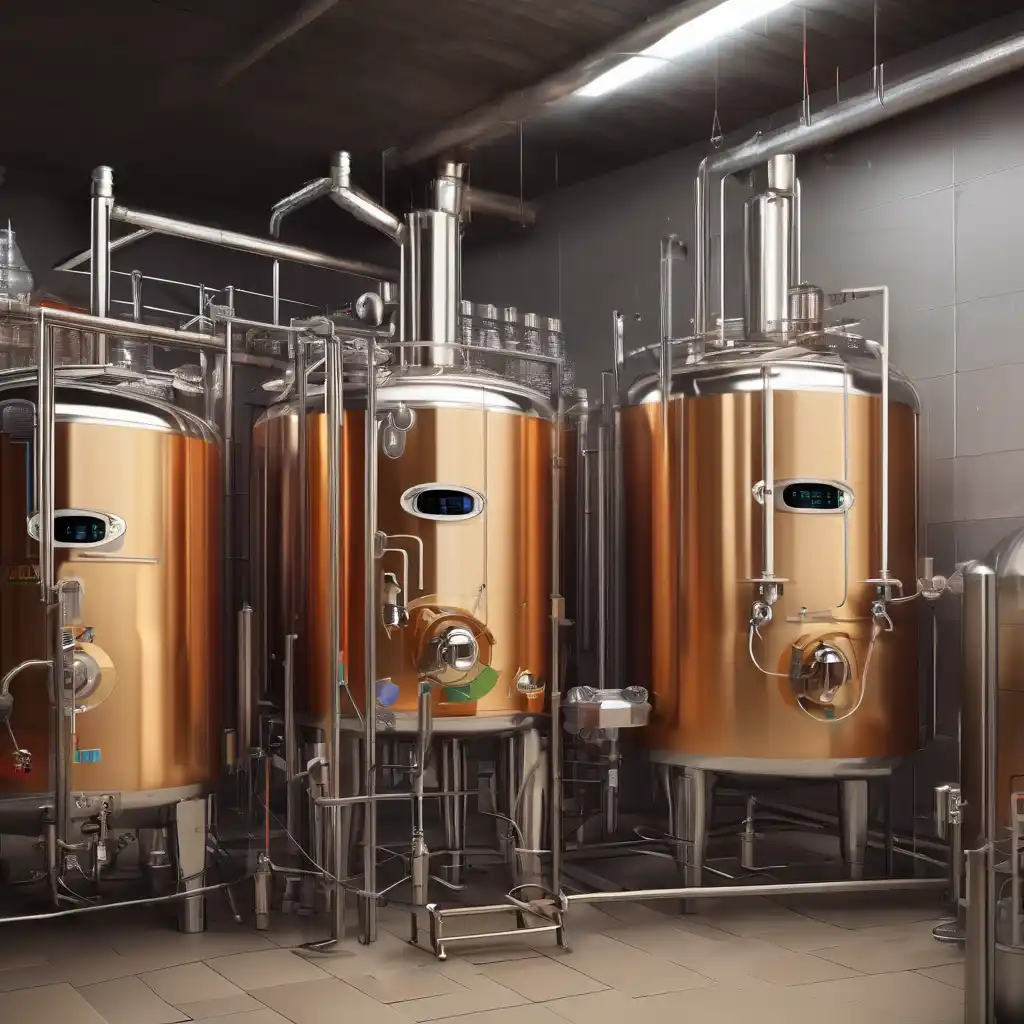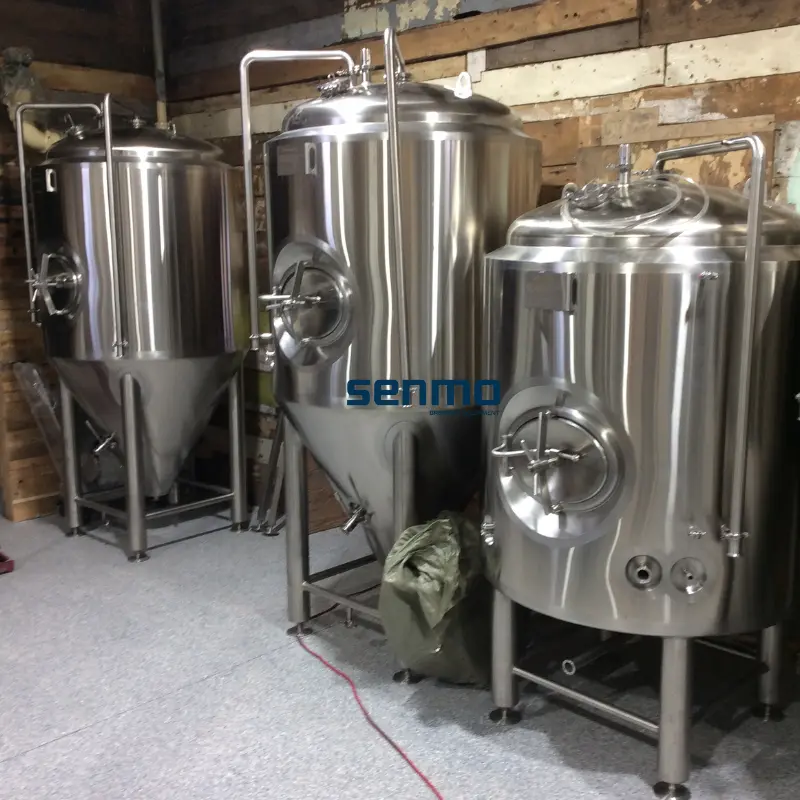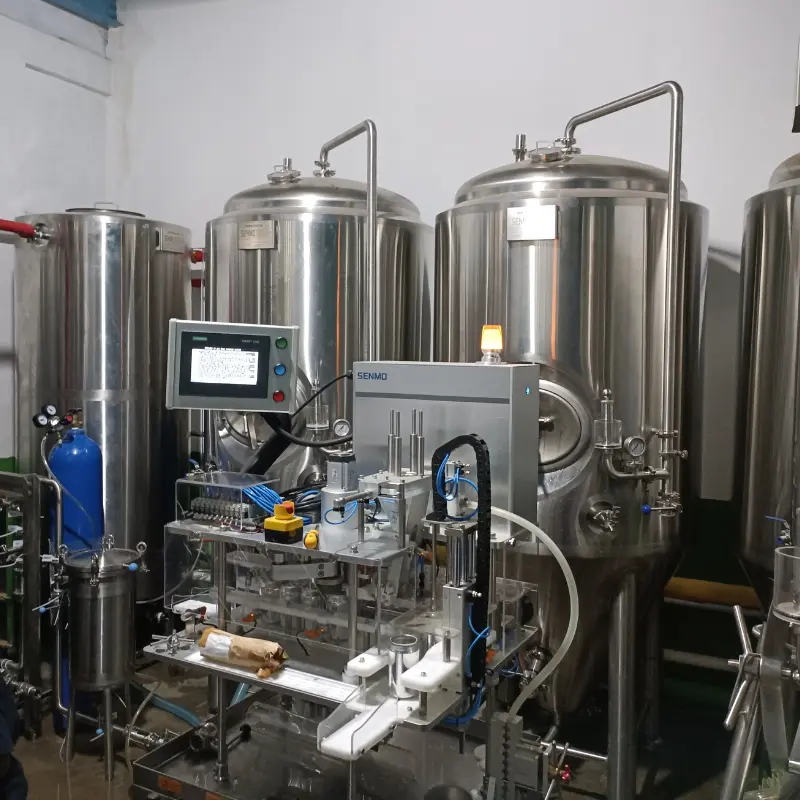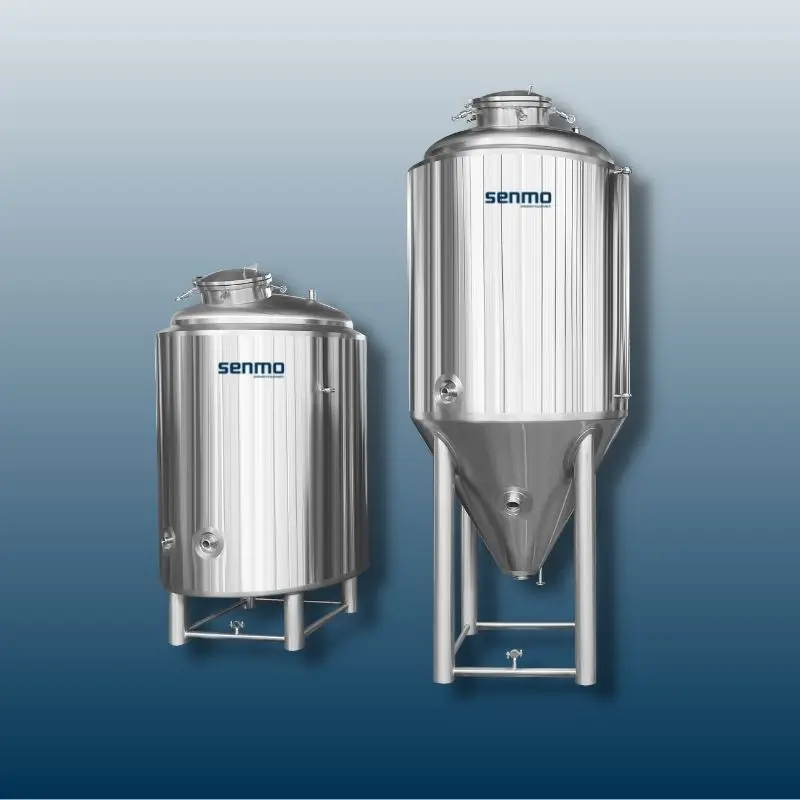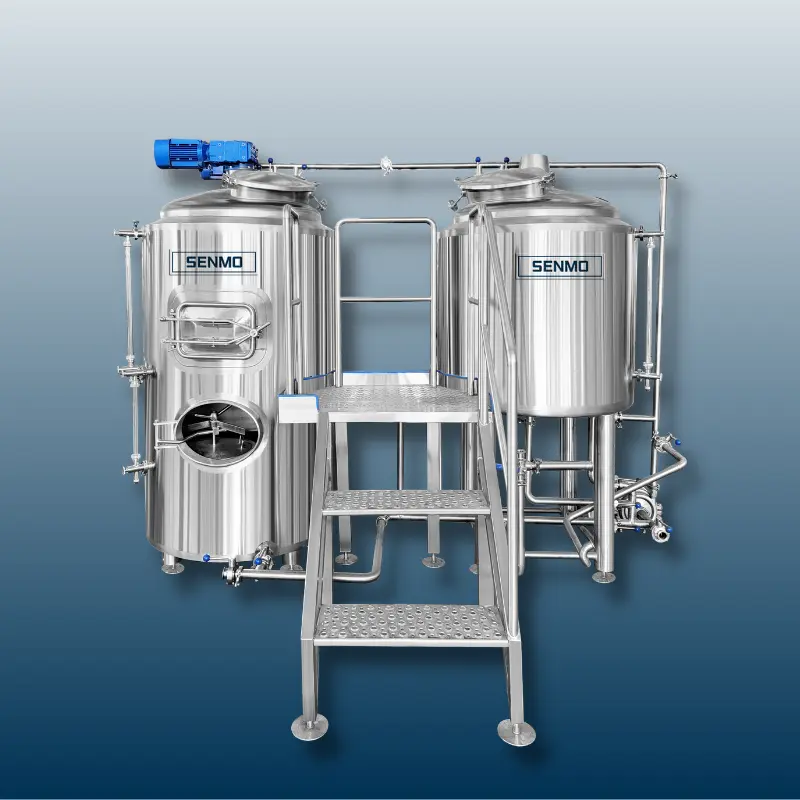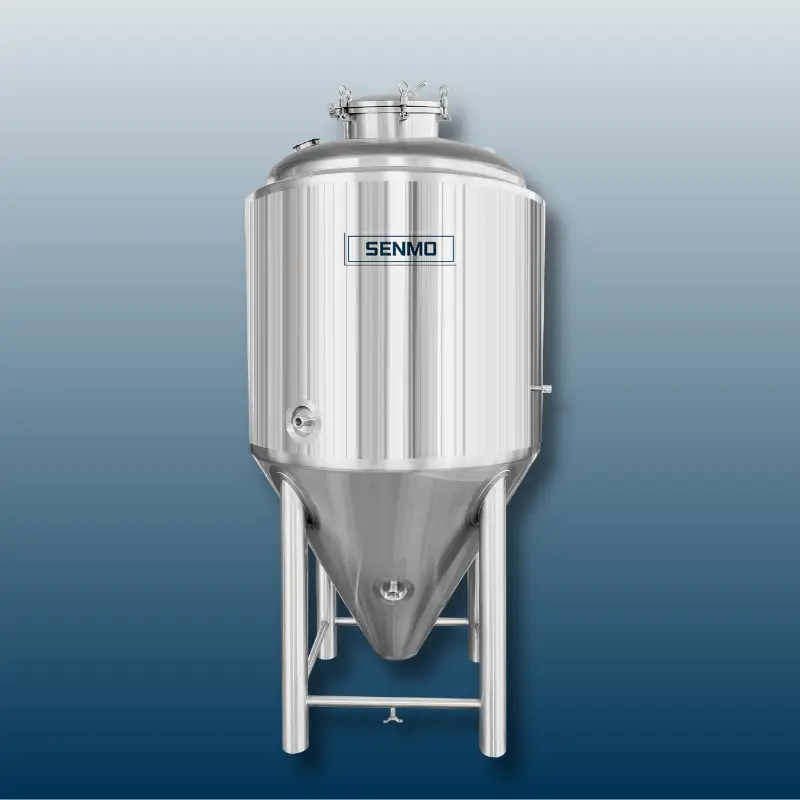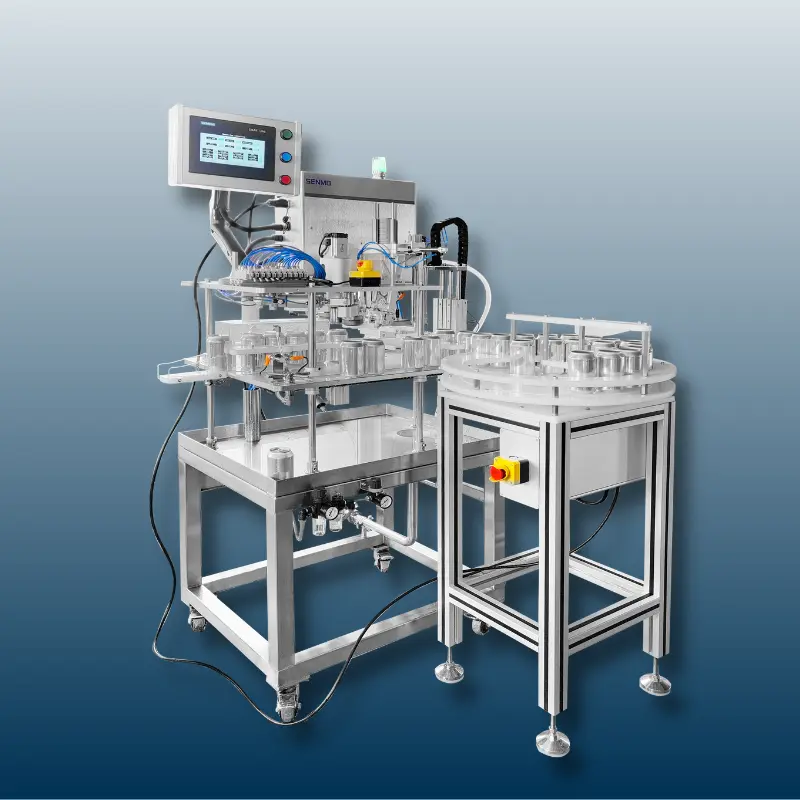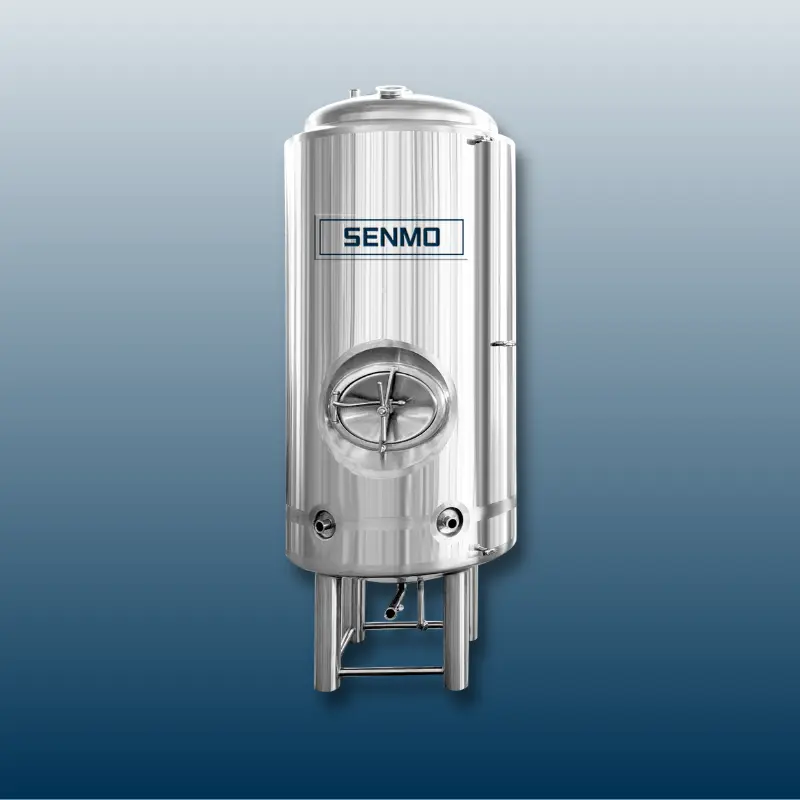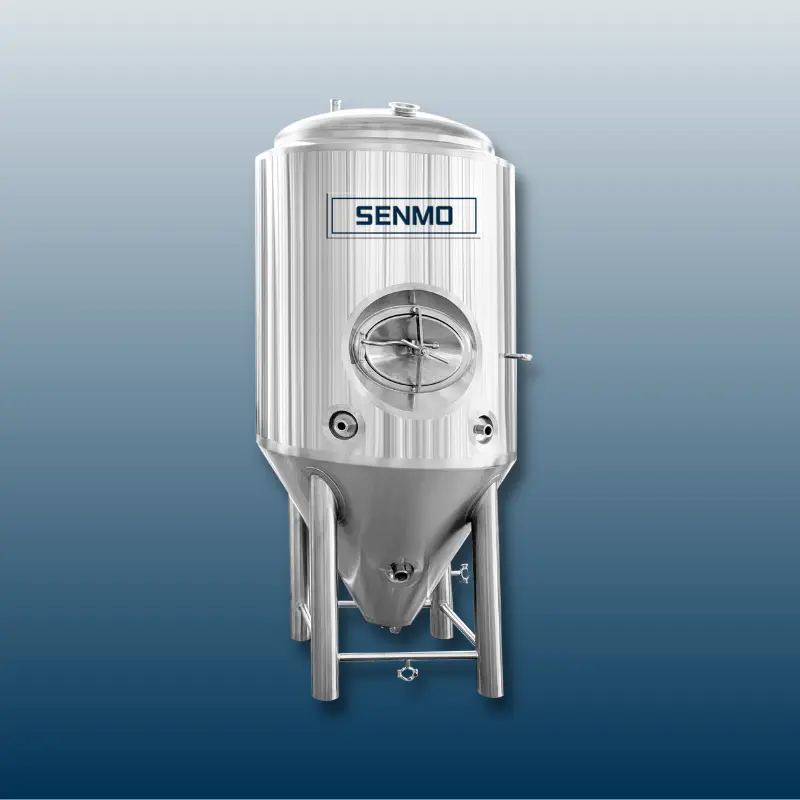In recent years, AI and automation have taken the beer industry by storm, leading to a revolution in how beer fermentation is managed. Traditionally, beer brewing depended heavily on manual processes and intuition, but now, with the incorporation of smart fermentation systems, breweries are leveraging data and cutting-edge technologies to optimize their operations. According to a 2023 report by the Brewers Association, 85% of large breweries in the U.S. have adopted some form of AI-driven automation, reducing labor costs by up to 30% while increasing fermentation accuracy.
Precision Through AI: Real-Time Fermentation Monitoring
One of the key innovations in smart fermentation is the integration of AI-driven real-time monitoring systems that transform the way breweries manage the fermentation process. In traditional brewing, monitoring the fermentation parameters such as temperature, pH, oxygen levels, and yeast activity often required manual sampling and adjustments, which left room for human error and inconsistencies between batches. However, AI and automation have radically improved this process by allowing continuous, second-by-second data collection and analysis within the fermentation tanks.
In modern AI-powered fermentation systems, advanced sensors are installed directly inside the fermentation tanks. These sensors constantly measure critical variables like:
Temperature, which must be carefully controlled to manage yeast activity and ensure proper fermentation rates.
pH levels, which influence both the flavor of the beer and the activity of the yeast.
Oxygen content, which is crucial for yeast metabolism, particularly during the early stages of fermentation.
Gravity readings, which reflect the concentration of fermentable sugars in the wort, providing an indicator of the fermentation progress.
These variables are tracked continuously, and the data is fed into an AI-based system that analyzes it in real time. The system can recognize patterns or anomalies that indicate issues like underperformance of yeast, contamination risks, or temperature fluctuations, which can negatively impact the flavor and quality of the beer. This level of precision ensures that brewing conditions remain optimal throughout the fermentation cycle.
One of the most prominent examples of real-time fermentation monitoring is the global craft beer leader, BrewDog. They have adopted an AI-powered fermentation monitoring system that automates many aspects of the process. The system gathers data from multiple sensors inside each fermentation tank and uses machine learning algorithms to continuously optimize brewing conditions. These algorithms can even make minute adjustments to parameters such as temperature or oxygen levels during fermentation, based on the data input, without requiring manual intervention.
For instance, if the AI detects that the yeast is slowing down due to a slight temperature drop, it can automatically adjust the tank’s cooling system to raise the temperature back to optimal levels. Similarly, if the pH levels fluctuate outside the desired range, the system can prompt specific corrections in chemical balances. This ability to adjust fermentation conditions on-the-fly has enabled BrewDog to maintain consistent beer quality across batches, even when scaling up production.
Since adopting this AI-powered fermentation monitoring system, BrewDog has seen significant improvements in both operational efficiency and product consistency. According to their internal reports:
Beer production efficiency has increased by 15%, meaning they can produce more beer in less time while using fewer resources.
Batch variability, which refers to the differences in taste, texture, and quality between different batches of the same beer, has been reduced by 10%, ensuring that customers get a consistent product every time.
These results demonstrate the tangible benefits of real-time AI monitoring in beer fermentation. By reducing variability, BrewDog not only improves its reputation for quality but also minimizes wastage from batches that would previously have been rejected due to off-flavors or other defects.
Another important advantage of real-time monitoring with AI is the ability to scale operations without sacrificing quality. As breweries expand production, maintaining consistency becomes increasingly difficult with manual processes. However, by automating data collection and analysis, breweries can expand their operations while still ensuring the same level of control over fermentation. Heineken, for example, has implemented a similar system, which allows them to monitor thousands of fermentation tanks simultaneously across their global production facilities.
In summary, the use of AI for real-time fermentation monitoring is a game-changer for the beer industry. The ability to continuously track and adjust critical fermentation parameters leads to higher efficiency, reduced batch variability, and more consistent beer quality. As seen with BrewDog, integrating smart fermentation systems not only helps improve production metrics but also allows for scaling up without compromising the end product. The future of beer brewing will likely see more breweries embracing these advanced AI-driven systems as they aim to meet rising demands while maintaining high-quality standards.
Automation: Optimizing Every Stage of Beer Fermentation
Automation has brought about a significant transformation in beer fermentation, optimizing each step of the process with unparalleled precision and efficiency. In the past, managing the fermentation process required brewers to oversee various aspects manually—adjusting temperatures, feeding yeast, and oxygenating the wort. These manual interventions were not only time-consuming but also left room for variability, which could impact the quality of the final product. Today, fully automated systems enable brewers to manage these processes with pinpoint accuracy, resulting in more consistent, efficient, and scalable beer production.
Temperature is one of the most critical factors in beer fermentation. Yeast activity is highly sensitive to temperature changes, and even minor fluctuations can impact the beer's flavor, aroma, and alcohol content. In traditional brewing, brewers would manually adjust the temperature by controlling cooling jackets or other temperature-regulating equipment. However, this method introduced the risk of human error, which could result in under- or over-fermentation.
Modern automated temperature control systems utilize real-time data from sensors embedded in fermentation tanks. These sensors continuously monitor the internal temperature and trigger automated cooling or heating systems to maintain the optimal range for yeast activity. The automation ensures that the temperature remains consistent throughout the fermentation process, reducing the chances of spoilage or flavor inconsistencies.
For example, Carlsberg's brewing facilities have implemented a fully automated temperature control system that optimizes fermentation by keeping temperatures within 0.5°C of the desired range. This system has helped them achieve greater consistency across batches and reduce their cooling energy consumption by 15%.
Yeast management is another critical stage in beer fermentation. Proper feeding of yeast with nutrients and oxygen ensures that it ferments the wort efficiently, converting sugars into alcohol and producing the desired flavors. In traditional brewing, yeast feeding and oxygenation were manual tasks, requiring brewers to carefully monitor yeast health and adjust the amount of nutrients or oxygen added during fermentation. This process was labor-intensive and prone to inconsistencies, especially when dealing with large-scale brewing operations.
With automation, yeast feeding and oxygenation can be programmed and fine-tuned to meet specific fermentation profiles. Automated dosing systems ensure that yeast receives the correct amount of nutrients at precisely the right time, while automated oxygenation systems control the exact levels of dissolved oxygen in the wort. These systems operate based on real-time data from sensors monitoring yeast activity, adjusting feed rates and oxygen levels automatically to optimize fermentation.
For example, Heineken's automated yeast feeding and oxygenation system allows them to control yeast health precisely across their global brewing facilities. This system monitors yeast metabolism and makes automatic adjustments to nutrient and oxygen levels, ensuring yeast performance remains at peak levels throughout fermentation. As a result, Heineken can produce up to 5 million hectoliters of beer annually, while reducing their overall yeast and nutrient usage by 12%.
One of the key benefits of automated beer fermentation systems is their ability to optimize energy and resource consumption. Fermentation processes, particularly those involving temperature control and oxygenation, are energy-intensive. By automating these processes, breweries can significantly reduce their energy consumption and operational costs.
For instance, Heineken has implemented advanced automation across their fermentation facilities, resulting in a 20% reduction in energy usage. Their system monitors the entire fermentation cycle and adjusts energy inputs—such as cooling systems and oxygen generators—based on real-time demand. This reduces energy waste and ensures that no more power is used than necessary. Additionally, Heineken's automated system is capable of remotely controlling operations, which reduces labor costs and the need for on-site personnel intervention.
Another major advantage of automation in beer fermentation is the ability to scale production without compromising quality. When breweries expand, they often face challenges in maintaining the same level of quality control as they increase their output. Manual systems are difficult to scale because they rely heavily on human intervention, which becomes less effective as production volume grows.
Automated fermentation systems, however, allow breweries to expand their production capacity while ensuring that quality remains consistent across all batches. Real-time monitoring and automated control systems can be applied to multiple fermentation tanks simultaneously, enabling brewers to manage thousands of hectoliters of beer with the same precision as a single small batch. This scalability is especially important for global brands like Heineken, which operate brewing facilities in multiple countries and need to maintain consistency across all markets.
An excellent example of this scalability is found in AB InBev's automated brewing operations. AB InBev uses a global network of automated fermentation systems, linked through cloud-based platforms that enable real-time monitoring and control from a central location. This system allows them to produce millions of hectoliters of beer each year while maintaining a consistent taste profile, no matter the size or location of the brewery.
Automation is revolutionizing every stage of beer fermentation, from precise temperature control and yeast management to enhanced energy efficiency and scalability. With examples from leading breweries like Heineken, Carlsberg, and AB InBev, it's clear that automated systems provide brewers with the tools to produce more consistent, high-quality beer while reducing labor and resource costs. As more breweries adopt these technologies, the industry will continue to evolve, making automation a cornerstone of modern brewing.
AI and Predictive Analytics in Fermentation: Preventing Errors Before They Happen
One of the most exciting developments in AI-driven beer brewing is predictive analytics. AI algorithms can process historical fermentation data to predict potential problems before they occur, such as yeast underperformance or microbial contamination. Sierra Nevada Brewing Co. uses predictive analytics in their smart fermentation systems to forecast when fermentation might stall or when oxygen levels need adjustment. This system has allowed them to avoid production delays and spoilage, reducing losses by 5% annually. Such automation not only boosts productivity but also helps ensure the consistent high quality of their craft beers.
Sustainability Through AI and Automation in Beer Brewing
Smart fermentation systems powered by AI and automation also support the industry’s move towards sustainability. Energy-efficient systems and precise fermentation control allow for reduced resource consumption. Carlsberg, for example, uses an AI-powered brewing system that has reduced water usage by 30% and energy consumption by 20%, while also cutting CO2 emissions by 12%. Automation ensures that energy-intensive processes, such as cooling and heating, are optimized, making the beer fermentation process far more sustainable.
Conclusion: The Future of Beer Brewing is Smart
Incorporating AI and automation into beer fermentation is revolutionizing how breweries operate. From real-time monitoring to predictive analytics, smart fermentation systems are helping breweries like BrewDog, Heineken, and Sierra Nevada produce better beer more efficiently. As more breweries adopt these technologies, the global brewing industry is set to become more efficient, sustainable, and capable of meeting the demands of beer enthusiasts worldwide. With automation increasing production capacity and AI improving quality control, the future of beer brewing is undeniably smart.
